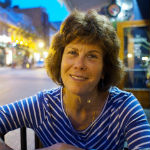Published: January 31, 2020
 You’ve made the decision to move to a continuing care retirement community, a “CCRC,” but with 2,000 life plan communities in the United States how do you find one that is right for you now and in the future?
You’ve made the decision to move to a continuing care retirement community, a “CCRC,” but with 2,000 life plan communities in the United States how do you find one that is right for you now and in the future?
Sure, location, cost and amenities are major factors to consider, but so is the financial stability of the life plan community.
“People who make the substantial financial investment that is required to move to a CCRC are assuming that the community will live up to its contractual obligations to provide these care services if and when they are needed. But how can you be certain that a CCRC will be able to uphold their end of the bargain? At the end of the day, CCRCs are a business, after all, and just like other companies, some CCRCs are better managed than others,” explains Brad Breeding, president and co-founder of myLifeSite, a company that provides resources about life plan communities.
Here are 5 key financial points to consider when choosing a life plan community.
The Balance Sheet
The balance sheet shows how much cash and investments are available. It’s important to see what funds have been set aside for specific purposes.
For example, Kendal at Oberlin has a strong balance of $45 million in unrestricted cash and investments. The Residents Assistance Fund has a current balance of $7.6 million. Kendal has made a promise to its residents that it will continue to support them if, through no fault of their own, they outlive their financial resources.
Another item to review on the balance sheet is the community’s debt. The “cash and investments to debt” ratio is usually determined by the age of the community, days of cash on hand and debt service. A ratio of more than 50% is desirable. Kendal’s ratio is 194.85%.
Quality Improvement Accreditation
More than 1,554 standards, with one section specifically focused on finances, are measured before gaining voluntary accreditation by CARF™ International. Of the almost 2,000 continuing care retirement communities in the United States, only about 200 are accredited.
“CARF accreditation signals a service provider's commitment to continually improving services, encouraging feedback, and serving the community,” according to the independent, nonprofit accrediting organization.
Kendal at Oberlin was re-accredited for a 5-year term, through June 2022. This is its fifth accreditation in 26 years. The community was recognized as having exemplary performance in its financial management, which operates at or above the 75th percentile for “days cash on hand” and “cash to debt ratio.”
Here is a current list of accredited life plan communities.
Occupancy Rates
Occupancy rates fluctuate within a community, but the main goal is to stay full. Occupancy at retirement communities is affected by the economy and home sales, both of which are currently strong.
According to a recent report from the National Investment Center, occupancy at CCRCs with an entrance fee remains strong. Entrance fee occupancy has grown approximately three percentage points since the middle of 2012 and in 2019 peaked at 92.6%.
At this time 98% of Kendal at Oberlin’s independent living spaces are committed.
Actuarial Report
A retirement community should conduct periodic financial evaluations through an actuarial report to ensure pricing is appropriate so that future needs of residents are met.
For instance, Kendal at Oberlin’s actuary:
- Assesses the sufficiency of current entrance and monthly fees;
- Evaluates the sufficiency of current cash reserves;
- Quantifies the overall actuarial health of the organization;
- Provides consultation prior to adjusting entrance fees.
One of the most important indicators is the actuarial funded status. This status represents the portion of liabilities (future expenses) covered by assets (future monthly fees and reserves). A funded status greater than 110-115 % is preferable.
Decision Makers
It’s important that members of the management team and board have experiences in a variety of business backgrounds, including healthcare, insurance, real estate and accounting. An active resident council that has a voice in the annual budgeting process, such as the Kendal at Oberlin Residents Association (KORA), is also a plus.
“By giving residents a voice in the budget process it not only helps provide another layer of financial oversight but also gives the residents a sense of inclusion, which is ultimately important to the overall culture and well-being of the community,” Brad Breeding says.
Now that you’ve learned a bit about Kendal’s financial viability, interested in finding out if Kendal fits your financial plans? Kendal offers a simple and quick seven question online evaluation to help you answer that question.
Free Guide: Straight Talk: Financial Facts for Choosing a Retirement Community
Learn about more financial considerations to help you evaluate a life plan community!
 In the past, Molly Kavanaugh frequently wrote about Kendal at Oberlin for the Cleveland Plain Dealer, where she was a reporter for 16 years. Now we are happy to have her writing for the Kendal at Oberlin Community.
In the past, Molly Kavanaugh frequently wrote about Kendal at Oberlin for the Cleveland Plain Dealer, where she was a reporter for 16 years. Now we are happy to have her writing for the Kendal at Oberlin Community.




